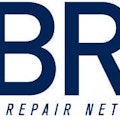Class action suit against New Jersey manufacturers insurance moves forward
The Union County Superior Court has rejected a motion to dismiss filed by New Jersey Manufacturers Insurance (NJM) in a class action lawsuit brought against it in New Jersey.
The suit, filed in June and led by plaintiffs Sam Mikhail (on behalf of the now-dissolved Quality Auto Painting Center of Roselle, Inc. d/b/a Prestige Auto Body) and BMR Automotive Service, Inc. (d/b/a Robbie's Automotive & Collision Specialists), alleges that NJM committed a number of offenses including violations of the Racketeer Influenced and Corrupt Organizations (RICO) Act, the Consumer Fraud Act (CFA) and the New Jersey Antitrust Act (NJAA), as well as individual claims for injurious falsehood and tortious interference with prospective business advantage. The plaintiffs, on behalf of themselves and the class members, seek actual/punitive/treble damages, interest, costs of the suit, attorneys' fees and "such other and further relief the Court deems just and proper." Additionally, the suit seeks injunctive relief to prevent future injury.
"At this point, we have rather significant positive action against NJM, including for violations of RICO and antitrust," comments the plaintiffs' attorney, Joshua Bauchner of Ansell Grimm & Aaron, PC. "We believe this is the first action against an insurer of this nature in New Jersey. We have some pretty substantial evidence regarding steering and the disparagement of the plaintiffs."
Prestige Auto Body alleges that it was forced to substantially cut its labor and paint charges to meet considerably lower "take it or leave it" rates set by NJM. Additionally, Prestige claims that NJM did not compensate them for the extra time needed for the installation of aftermarket parts and will only permit payment for a regular OEM part if an auto body shop first attempts and fails to install the aftermarket part. The suit states that "it often takes months to secure a refund for the aftermarket part which could not be installed and to secure agreement for payment from [NJM], without accounting for the delay suffered by the consumer."
Robbie's Automotive & Collision Specialists owner Robbie Berman, who participated in NJM's Direct Repair Program (DRP) for more than two decades, claims to have left that program last year after receiving unsatisfactory reimbursement from the insurer for his services. The suit includes various examples of NJM subsequently steering work away from Berman's facility by "intentionally misrepresent[ing] to insureds that Robbie's and other targeted body shops are not on [the insurer's] 'preferred list of shops' - even though they are not permitted to have such a list and insureds did not request a recommendation from [NJM]."
"For the past five years, they were promising me some kind of increase [in the Labor Rate]," Berman says of his decision to leave NJM's Direct Repair Program. "The last time they presented me with a contract, not only did they not give an increase, but they took things away. They told me that washing cars was a part of me doing business, and they cut back on sublets. Cars keep getting more technical, and employees keep getting more expensive. The cost of the cars keeps going up, but somehow the Labor Rate to repair them keeps going down."
Charles Bryant, executive director of the Alliance of Automotive Service Providers of New Jersey (AASP/NJ), believes a successful conclusion to this lawsuit could help put an end to a host of issues that continue to negatively impact collision repair facilities throughout the state.
"This suit was brought on by the insurer because of greed and their unwillingness to pay a fair and reasonable amount to repair vehicles damaged as the result of a collision. The insurer is dictating what it will pay rather than making all reasonable efforts to negotiate an agreed price to repair an automobile as required by the regulations governing fair claim settlement practices, while the New Jersey Department of Banking and Insurance looks the other way. When a collision shop fails to surrender and take whatever the insurer wants to pay, the insurer engages in unlawful 'steering' activity by claiming that the shop is being unreasonable and overcharging; they then pressure insureds to have their vehicles repaired at specific 'preferred' repair shops that can afford to fix the vehicles at lower rates because of the high volume of work being steered to them. This type of suit has to happen because of the unwillingness of greedy insurers to work these issues out and pay fair and reasonable rates for the procedures now required to safely and properly repair vehicles on the roads today."
About the Author
